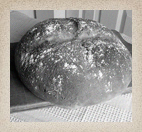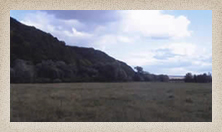
July 1944
At about eight in the morning, Melnik came out to see whether we had left or not. He was again a changed man and greeted us with: “The Germans have left the village in a hurry. The Russians have not yet arrived here but they are already in Zurawno.” After this joyous announcement, we were invited into his house for breakfast. He took the precaution of asking us to come in without attracting the attention of his neighbors. He said that the Ukrainians might kill him if they knew he was befriending Jews.
We found it very difficult to absorb the full meaning of his words. We could not believe that the moment we had waited for so long, had now arrived. Were we really now released from the death sentence pronounced by the Germans? My father and I fell into each other's arm and remained together for some time with tears streaming down our faces. Fate had ceased to torture us.
At breakfast the Melnik family beamed at us with joy. They looked at us as we ate our first meal in freedom for three years. They had prepared a festive meal of meat and freshly baked bread and other foods. We were careful not to eat fatty food for fear that our shrunken stomachs would not be able to digest them.
After the meal and a wash, we set along the way to Zurawno. How beautiful and innocent the countryside looked on that day. Now and again we found ourselves looking furtively around us to check whether we were being followed as we walked along the high road as free men. In this respect we had developed all the instincts of animals that lived in constant danger. It took us a long time to shake off these habits.
Along the road, we met the first of the Red Army soldiers in the area. We remembered their uniforms from the years of the Soviet occupation of our area (1939-1941). Very excited, we walked up to them and thanked them for all they had done. It was fourteen months since we had allowed ourselves to walk up to people in this normal way. They responded in a very open way and after a few questions as to how we fared under the German occupation, they went on their way. They even offered us some bread.
Reprinted from The Fields of Ukraine: A 17-Year-Old's Survival of Nazi Occupation; The Story of Yosef Laufer by Haim Tal (Dallci Press 2009), with permission granted by Dallci Press on March 28, 2010.

